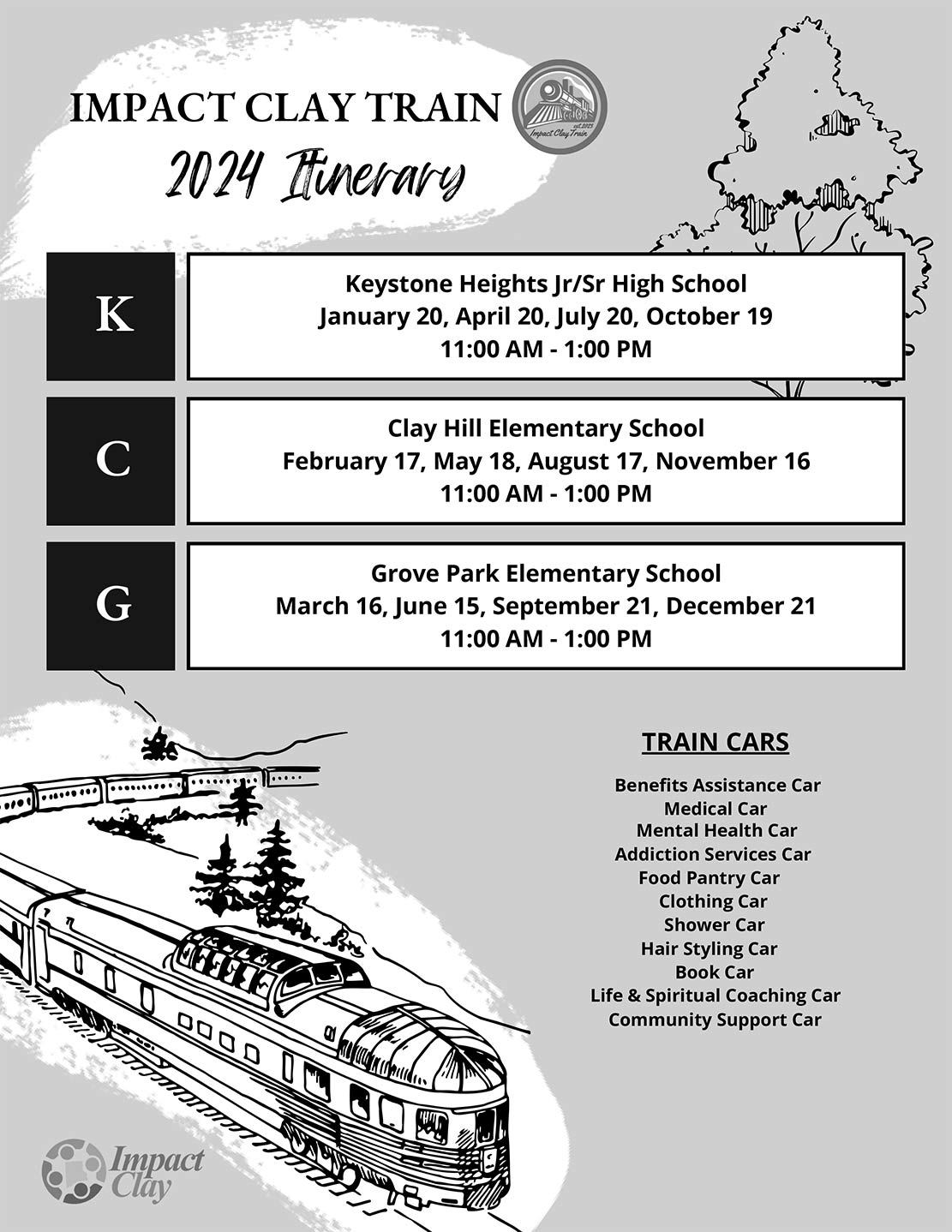Impact Clay Train
A Mobile Crew Caring For You
Mobile neighborhood care teams, often comprised of healthcare professionals and community workers, play a crucial role in improving healthcare and social services access with positive outcomes in local communities. Here are some potential impacts of such teams:
Increased Access to Healthcare: Mobile teams can bring healthcare services closer to residents, especially those in underserved or remote areas. This improves access to medical care and health information, reducing barriers to seeking medical help.
Early Intervention and Prevention: These teams can conduct regular check-ups, provide health and mental health education, and provide outreach programs to identify health issues early and promote preventive measures. This can lead to better health outcomes and reduced healthcare costs.
Chronic Disease Management: For individuals with chronic conditions, mobile care teams can provide ongoing support and monitoring, helping patients manage their conditions more effectively and reducing hospital admissions.
Improved Health Literacy: Mobile teams can educate communities about healthy lifestyles, nutrition, and disease prevention. This helps residents make informed decisions about their health.
Emergency Response: In the case of emergencies or disasters, mobile care teams can provide critical first aid, triage, and initial medical care to affected populations, which is essential in disaster-prone areas.
Mental Health and Addiction Support: Mobile teams can also address mental health and addiction issues, providing counseling, support, and referrals to appropriate services for those in need.
Food Support: Mobile food units bridge the gap between food deserts and residents with transportation issues. It can also provide healthy food items that would be cost prohibitive for families in need.
Hygiene Support: Mobile Hygiene units comprised of laundry, shower and hair services are often unaffordable or not available in remote locations. Not only do these services reduce the risk of illness, but they also raise the mental well-being of residents who often see themselves as undesirable.
Technical Support: Mobile Technology units bridge the gap for locations that lack Wi-Fi services. They also provide hands-on support for residents who cannot afford computer equipment, lack the knowledge to apply for benefit services and those who have difficulty reading or communicating.
Reduced Disparities: By reaching out to underserved communities, mobile care teams can help reduce disparities in healthcare and social services access and outcomes, ensuring everyone has access to quality care.
Community Building: These mobile teams can foster community and social support, positively impacting overall health and well-being for generations to come.
Cost Savings: By addressing physical and mental health issues earlier and reducing emergency room visits, mobile care teams can lead to cost savings for individuals and the healthcare system.
It's important to note that the effectiveness of mobile neighborhood care teams depends on factors like proper planning, collaboration with local stakeholders, funding, and the specific needs of the community they serve. The impact of such teams can vary from one location to another. If you have more specific information or questions about "Impact Clay Train" or a particular scenario, please provide additional details, and we will be happy to offer more targeted information.

